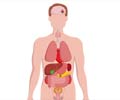More autism susceptibility genes have been discovered by a collaborative team of geneticists from The Children's Hospital of Philadelphia
More autism susceptibility genes have been discovered by a collaborative team of geneticists from The Children's Hospital of Philadelphia, the University of Pennsylvania School of Medicine, and several other institutions.
The researchers said that they identified 27 different genetic regions where rare copy number variations - missing or extra copies of DNA segments - were found in the genes of children with autism spectrum disorders (ASDs), but not in the healthy controls.The complex combination of multiple genetic duplications and deletions is thought to interfere with gene function, which can disrupt the production of proteins necessary for normal neurological development.
"We focused on changes in the exons of DNA-protein-coding areas in which deletions or duplications are more likely to directly disrupt biological functions," said study leader Dr. Hakon Hakonarson, director of the Center for Applied Genomics at The Children's Hospital of Philadelphia and associate professor of Pediatrics at the University of Pennsylvania School of Medicine.
"We identified additional autism susceptibility genes, many of which, as we previously found, belong to the neuronal cell adhesion molecule family involved in the development of brain circuitry in early childhood," he added.
According to him, the study also revealed many "private" gene mutations, those found only in one or a few individuals or families-an indication of genetic complexity, in which many different gene changes may contribute to an autism spectrum disorder.
"We are finding that both inherited and new, or de novo, genetic mutations are scattered throughout the genome and we suspect that different combinations of these variations contribute to autism susceptibility," said Dr. Maja Bucan, professor of Genetics at the University of Pennsylvania School of Medicine and Chair of the Steering committee for Autism Speaks' Autism Genetic Resource Exchange (AGRE).
Advertisement
During the study, the researchers compared genetic samples of 3,832 individuals from 912 families with multiple children with ASDs from the AGRE cohort against genetic samples of 1,070 disease-free children from The Children's Hospital of Philadelphia.
Advertisement
Key variants of these genes, say the researchers, were transmitted in some, but not all, of the affected individuals in families.
A research article on the findings has been published in the journal PloS Genetics.
Source-ANI
RAS















